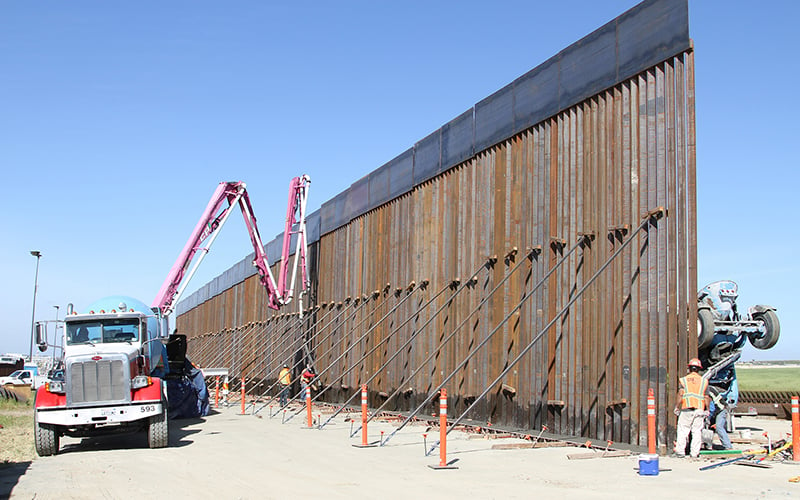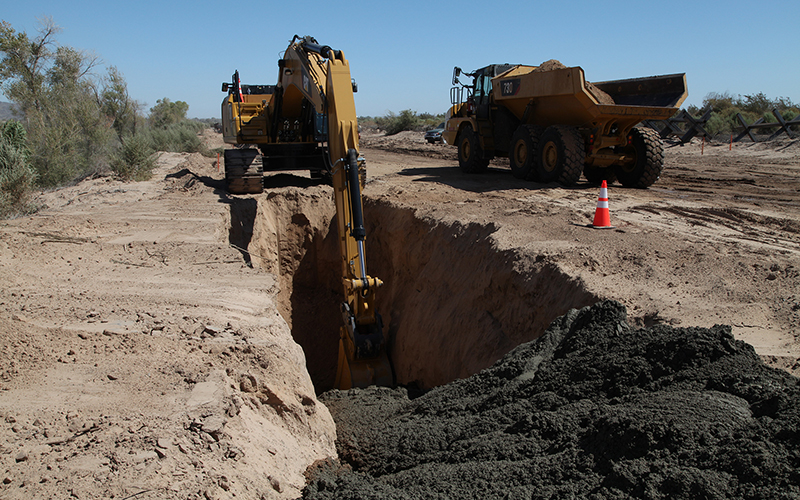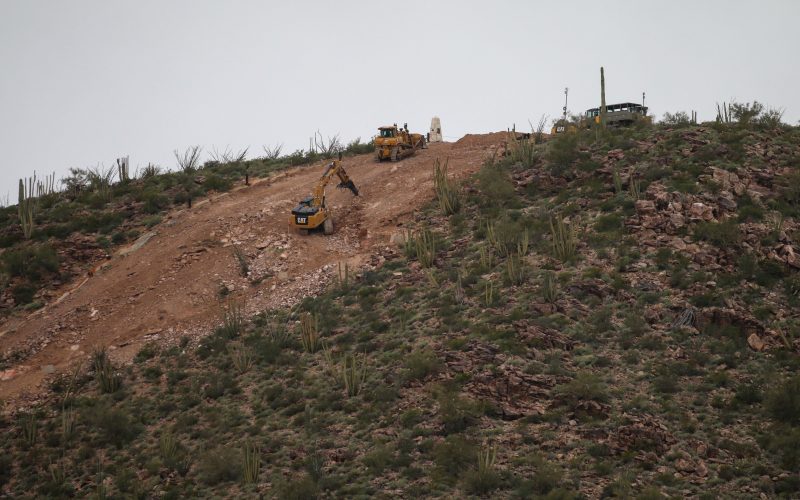WASHINGTON – The Trump administration took another step toward expediting construction of a border wall Tuesday, announcing it is waiving federal contracting regulations to fast track construction in four states, including Arizona.
The targeted regulations, dealing with contracting, pricing and wage regulations, need to be waived “to ensure the expeditious construction of barriers and roads” to stop drugs at the border, Acting Homeland Security Secretary Chad Wolf said in a notice set to be published in the Federal Register.
A Department of Homeland Security statement said the agency will “waive procurement regulations in six high-traffic border sectors … to build an additional 177 miles of new border wall system.” The waivers will affect six areas, including projects in Yuma and Tucson.
“The United States remains in a border emergency,” DHS spokeswoman Heather Swift said in the statement, adding that the department is “building more wall, faster than ever before.”
This announcement comes just weeks after the agency was criticized for blasting sections of border without consulting local tribes about culturally significant sites. Critics say the administration has now invoked Section 102 of immigration law to waive more than 40 federal regulations in pursuit of border wall construction
David Bier, an immigration policy analyst for the Cato Institute, said Wolf’s announcement does not provide sufficient explanation – or any at all – as to how these latest waivers will help speed up border wall construction.
“They say there’s an urgent need,” Bier said. “But they don’t say taking this action will, therefore, allow us to build the border wall in three months instead of nine months or 12 months or whatever the case might be. So they really don’t do a good job of justifying it.”
Two pages of the nine-page document are dedicated to a listing of the amounts of drugs that were seized and the number of border crosser apprehended in the various southern border sectors in fiscal 2019. That included 131,000 migrants in the Yuma and Tucson sectors, where 62,000 pounds of marijuana and 3,886 pounds of methamphetamines were seized, among other drugs. It identified Yuma, Pima, Santa Cruz and Cochise counties in Arizona as “High-Intensity Drug Trafficking Areas.”
The document also included three pages detailing proposed project boundaries, and said DHS will take “immediate” action on fencing projects in the Yuma and Tucson sectors.
The latest waivers were criticized by opponents like Rep. Ann Kirkpatrick, D-Tucson, who said in a statement Tuesday that President Donald Trump is “overstepping the limits of executive power” with them.
“It is reckless and alarming how the President continues to violate our federal laws and ignore the separation of powers our Constitution outlines,” her statement said.
Vicki Gaubeca, director of the Southern Border Communities Coalition, agreed that Trump is “completely stripping Congress of its constitutional power and control of the purse. And by waiving these procurement laws, it seems like another insult to injury.”
The Center for Biological Diversity late last month petitioned the Supreme Court to overturn the Section 102 waivers on constitutional grounds.
“Waiving contracting laws shows how deeply authoritarian the Trump administration has become and how important it is for Congress to repeal the law that Trump is abusing to decimate the borderlands,” Randy Serraglio, a conservation advocate at the center, said in a statement Tuesday.
Rep. Paul Gosar, R-Prescott, a Trump defender, repeated a statement from early February, when he defended the administration’s use of waivers and said current laws get in the way of border projects.
“I fully support ongoing efforts to secure our border,” Gosar said in that statement.
But a senior policy adviser for immigration at UnidosUS wondered if the timing of the announcement might be more political than practical, noting that Trump will be in Phoenix Wednesday for a campaign rally. Carlos Guevara said the waivers could be a re-election campaign ploy, trying to show Arizonans at his rally that his administration is making concrete moves to complete the wall.
“It’s part of – in some ways – an expected turn as they start to anticipate and make their push for what’s ahead and the fall of 2020,” Guevara said.



